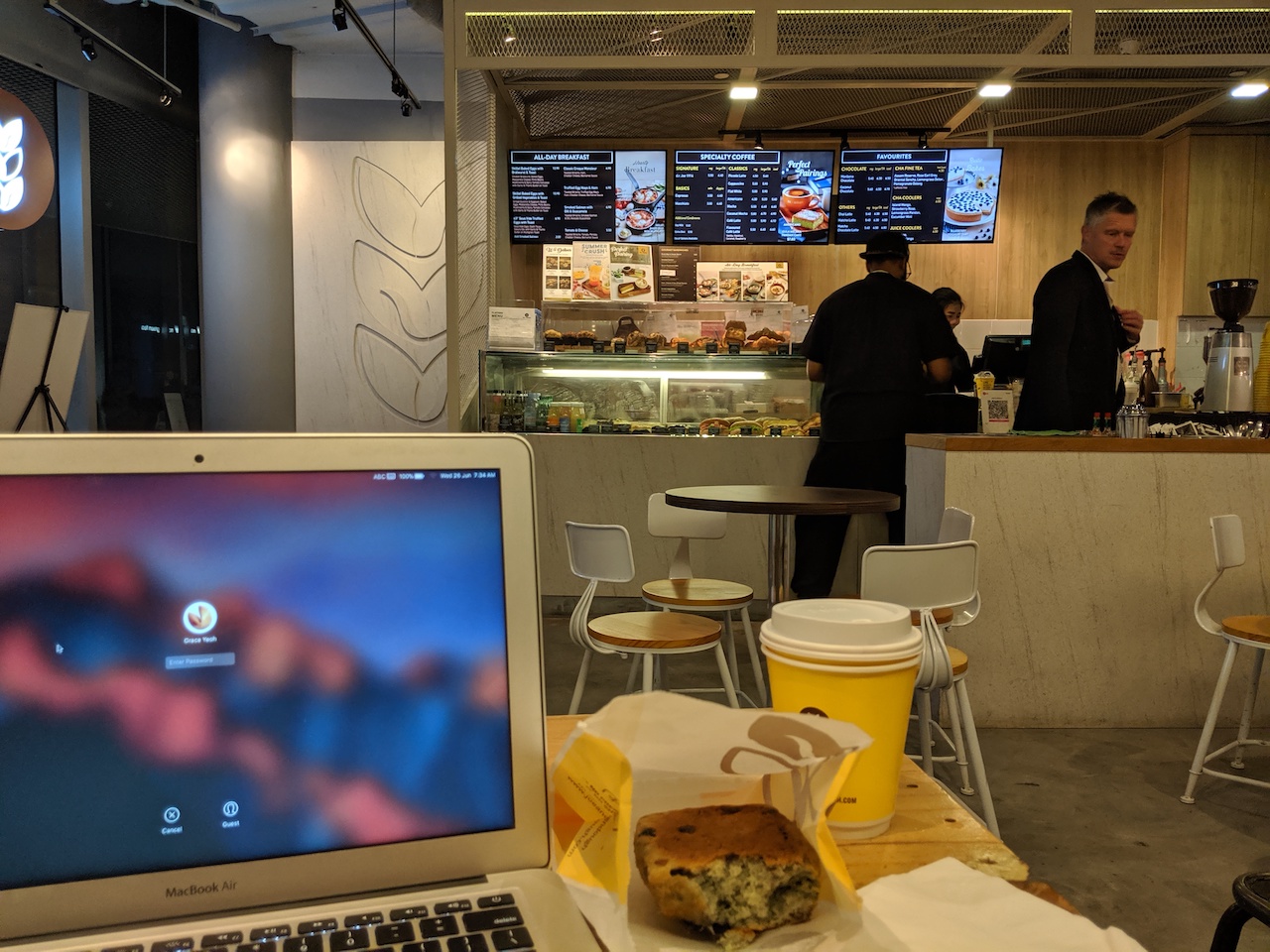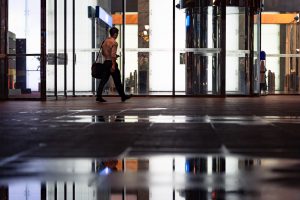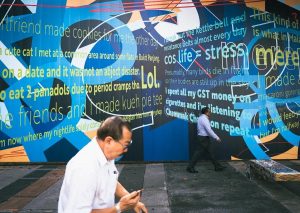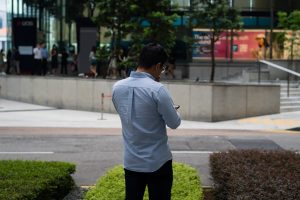With Type-A people, more is more: more productivity means being more effective, which means having more time to do more things, and hence gaining more satisfaction. We’ve been told to “chill” more times than we can remember, but we are simply wired to chase the high of ticking off our to-do lists.
And so, when I stumble upon Type-A Breakfast, I realise I’ve found my tribe.
Type-A Breakfast is a community of productivity obsessives who gather every Monday, Wednesday, and Thursday from 7:30 to 9:30 AM to complete a whole day’s worth of work (i.e. eight hours). This massive productivity boost allows them to spend the rest of the day working on other tasks that were meant to be done throughout the rest of the week.
According to Type-A Breakfast, they use the Ivy Lee Method to determine the tasks that need to be completed within the two-hour sprint. The method recommends creating a list of “no more than six tasks—in order of importance—to be completed without interruption”.
That’s all well and good. But because I’m certifiably insane, I decide to attempt something I’ve not done since I left school: I would finish this article in two hours, as though I am in a fucking examination hall.
When my editor and a few colleagues heard of my self-imposed challenge, they scoffed in disbelief. One even bet me the price of a morning coffee that I wouldn’t be able to do it. After all, we usually have the luxury of taking at least a day to bang out an article.
Guess what? These people are about to be schooled in Life Lesson #1: Never doubt a Type-A personality’s ability to get shit done.
Game on.
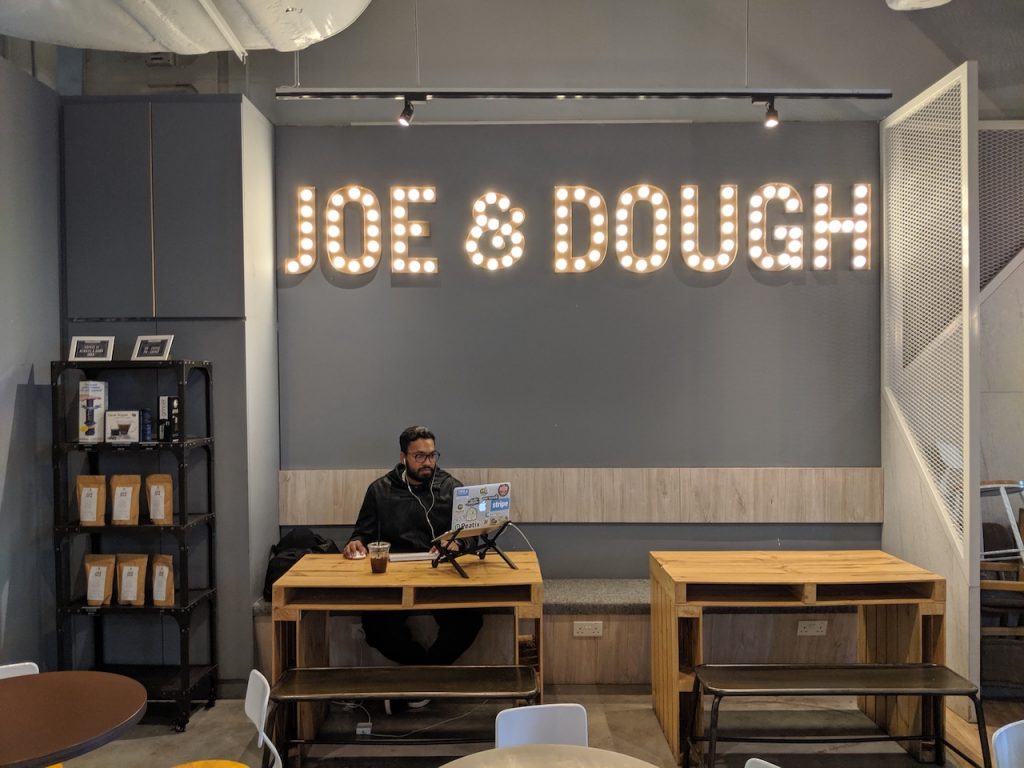
If there is one typical Type-A trait I am proud to have, it’s my exceptional punctuality. In fact, like today, I’m usually early.
Every Wednesday, Type-A Breakfast is held at DUO Galleria’s Joe & Dough cafe. The cafe isn’t open for another 10 minutes, but the barista lets me order my Long Black. She puts it in a takeaway cup before I can inform her that I actually plan to sit here and do work now.
So she appears a bit confused when I spend the next 10 minutes sitting in darkness, ready and raring to work once the lights get turned on.
7:33 AM
Nicholas Gerard, the organiser, sets his bag down next to me. He ensures I know what’s ‘expected’ of me over the next two hours, and asks whether I’ve seen the template he usually sends over to new ‘members’ to help them figure out the list of tasks they plan to complete within two hours.
I assure him I know what to do.
“With Type-A Breakfast, you have, like, 10 people indicate interest on Facebook. But only two show up, because the rest think it’s too early,” he shares.
HA. Noobs. Then they’re not truly Type-A personalities.
Three minutes after the supposed start time, he finally quips, “I guess I shall not hold you up, otherwise that would defeat the purpose of Type-A!”
I flip open my laptop and spend the next 30 minutes typing the 500-odd words above. So far, so good.
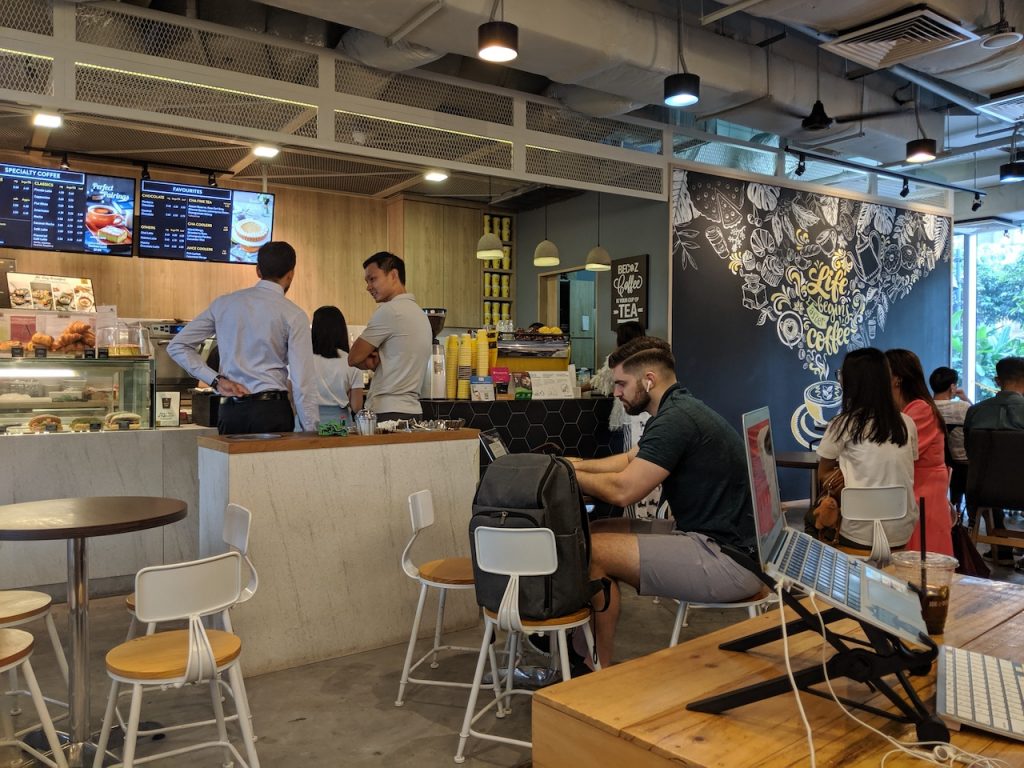
The caffeine has kicked in.
I feel myself enter the ‘dissociative’ state that I usually sink into when I’m on a tight deadline. When this happens, I go onto ‘autopilot’ mode: my mind becomes hyper-focused, the surrounding noise gets reduced to a pleasant hum, and I block all thoughts unrelated to the present task from seeping into my subconscious.
It’s the best kind of tunnel vision, where all I see is the end goal: to complete the task by a certain time.
To my right, Nicholas types away furiously at his laptop. To my 10 o’clock, another two women have set up their ‘work stations’. I can’t guarantee they’re part of Type-A Breakfast, since they weren’t present during earlier introductions, but their intense concentration spurs me on.
Apparently, this powerful motivation I experience forms one of the core principles of Type-A Breakfast: the importance of social influence or peer pressure. The community believes, “When you’re surrounded by fellow Type-As who wake up at 6 AM (or earlier) to work hard, you really don’t want to spend time on Facebook, answering leisure chat messages, or simply re-reading emails.”
Prior to the event, I wondered why Type-A Breakfast couldn’t happen online through virtual communities. Turns out, physically being around people who give off the same ‘vibe’ makes your productivity sky-rocket.
Perhaps I should write all my future articles from libraries during exam season.
8:15 AM
At this point, my productivity feels a little ridiculous. I’m on page THREE of my article after merely 45 minutes, when I typically take a few DAYS to ruminate on a solid introduction that would capture the reader’s attention.
This surprises me mainly because I’d attended Type-A Breakfast to test whether the premise of completing a whole day’s work in two hours would work for all tasks, such as those that require teamwork or mulling over. I figured something like writing an article should not be ‘rushed’ because it requires creativity—something that tends to take its own sweet time to develop.
It would also be more realistic if, say, you planned to put together a report or presentation deck with information already on hand within the two hours.
Yet, here I am, thoroughly satisfied with my progress thus far. All things considered, I haven’t skimped on quality either. (I hope. You be the judge.)
8:39 AM
I recall something a friend once told me about productivity, as he sped over to dinner from the office. Despite being tempted to take a raincheck and spend dinner in the office doing work, he still decided to attend our pre-planned dinner.
When I mentioned I wouldn’t have minded if he’d just postponed dinner, he simply said, “Parkinson’s Law. Google it.”
Parkinson’s Law—another principle that grounds Type-A Breakfast—asserts that “work expands so as to fill the time available for its completion”. This means that if you allocate two hours to complete something, it will get done in two hours; giving it seven hours to get done means it will get done in seven hours. You get the picture.
Basically, don’t cancel plans with friends just to give yourself more time to finish work, because the work will never get done if you’re constantly flexible with the time given to it. Just set a deadline and meet it. No exceptions.
Okay fine, minimal exceptions.
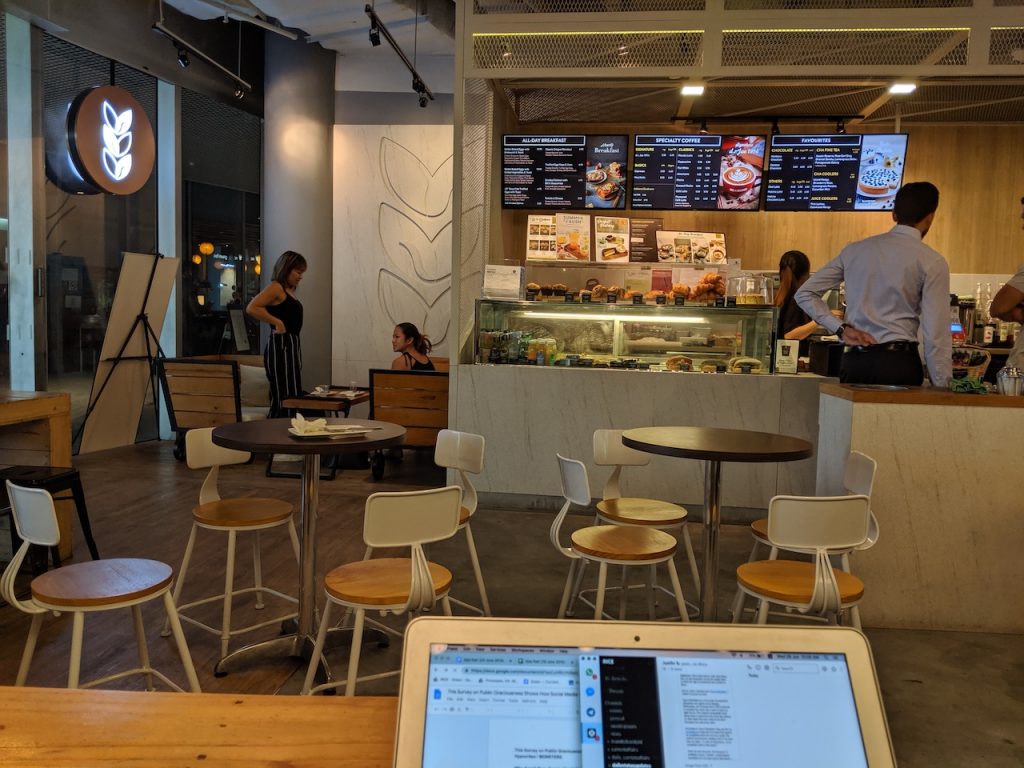
With about 45 minutes left to go before the end of the session, I see the rest of my day panning out nicely. Because I would’ve completed this article, which would usually take a day to write, I would be able to focus on other duties I’d been procrastinating for ages.
I mean, I even have time for a lunchtime workout at a nearby gym.
Even though my productivity levels are through the roof, I haven’t quite figured out the answer to a few pertinent questions I had before 7:30 AM.
Is the premise of Type-A Breakfast a superior way of working? Does not being able to complete a day’s worth of tasks within the first two hours of the day mean you’ve ‘failed’ at being productive? And does the effectiveness of Type-A Breakfast really depend on the nature of one’s job, or is it all about defining productivity for yourself, regardless of industry?
For instance, creative professions aren’t judged by quantity (i.e. productivity) as much as quality (i.e. final product). Knowing this, they might find Type-A Breakfast ineffective in helping them accomplish a whole day’s tasks, which might sometimes entail just brainstorming for a brand pitch.
At least, that is what I believed before I sat down for the last 1.5 hours doing ‘creative’ work.
With 30 minutes left on the clock now, I read about Pareto’s Principle—possibly the most important principle of Type-A Breakfast.
Pareto’s Principle is about “the 80–20 rule”: start by recognising that 80% of your results will likely come from 20% of your efforts. According to the community, it’s imperative that you “identify the vital 20% of work that would produce the most leverage and strategic value” before each session. This forces you to drop “non-essential, inconsequential work”.
In other words, I no longer believe it’s hard for creative professions to find these two hours ineffective anymore. I dare say it’s even a cop-out.
In this case, if you believe it would be easier to brainstorm effectively once you’ve done research about your client’s brand, or once you have a singular key message to market, then use the two hours to finalise just those things.
Once all that legwork is out of the way, the rest of the day would resemble focused ideation, instead of messy and unproductive ‘brainstorming’ that’s actually aimless social media surfing.
That said, you shouldn’t think of Type-A Breakfast as solely for “vital” tasks. Some people, according to Nicholas, use the two hours to check-off a list of mandatory but tedious administrative tasks that they usually wouldn’t have the headspace to tackle after they’re spent from a day’s work. For example, clearing invoices or sending out networking emails.
Essentially, productivity looks different for everyone—and if anything, the two hours forces you to realise how it looks for you.
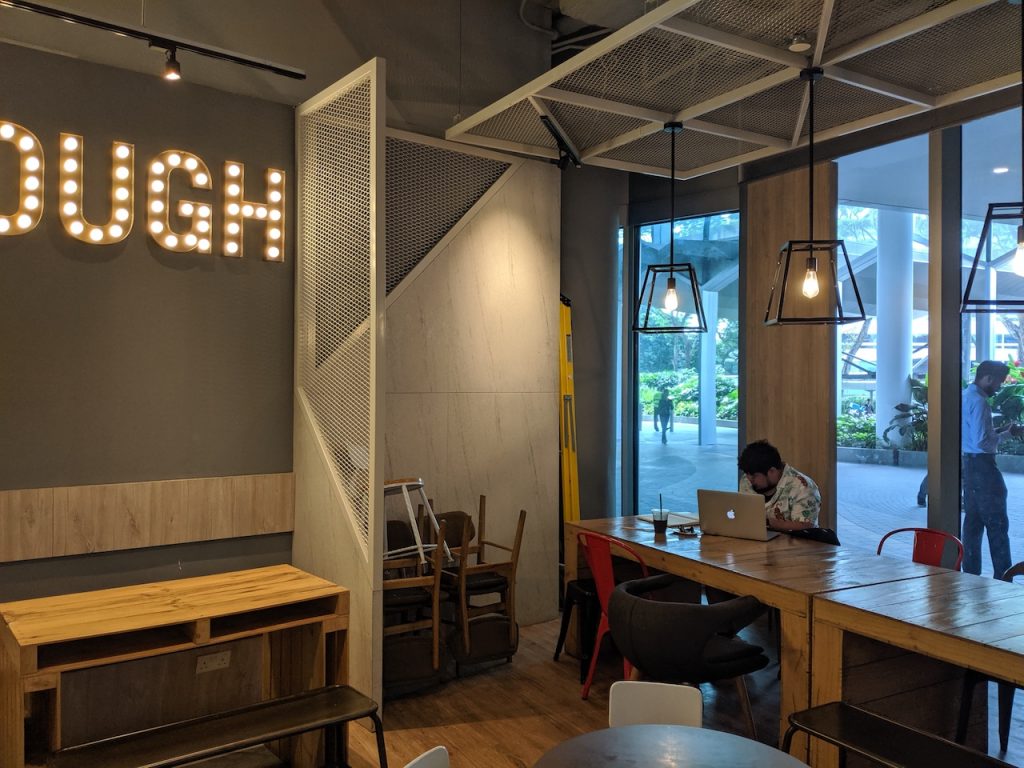
Someone who was probably Type-A once said, “Fail to plan, and you plan to fail.”
So, I must highlight one crucial thing: to make full use of the two hours in Type-A Breakfast, preparation has to begin the day before.
With this article, I already had its format, a rough outline, and a few key points I wanted to talk about jotted down in this word document. I’d be kidding myself if I believe I’d still have finished this article, if I’d started these two hours utterly unprepared, hoping for something worthwhile to materialise at the end.
Now, excuse me while I head to the office, secretly pleased that I’ve already accomplished more than almost everyone I will pass on the way there, even before they’ve begun their day. I also plan to collect my free coffee.
Time check: 9:27 AM.

